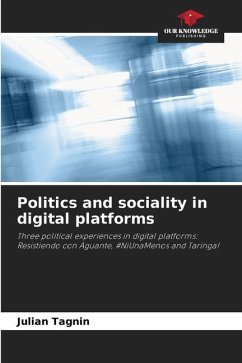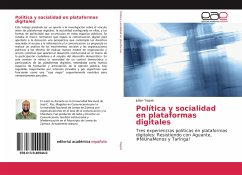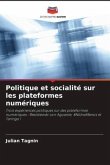This paper aims to be a contribution to the research on the link between digital platforms, the sociality configured in them, and the forms of politicization that are articulated in these public spaces. The normative framework that regulates digital communication is studied in order to contribute to the discussion from a perspective that considers the rights associated with access to information and communication. The proposal is to carry out an analysis of social movements and political organizations in order to evaluate new modes of organization and collective action that contribute to institutional development within the framework of citizen participation and respect for democratic development. In this sense, the need for a democratic and participatory control of digital platforms, understood as new spaces for the formation and articulation of public opinion, today mostly regulated by private interests and algorithms that function as a "black box" supposedly neutral but necessarily biased, is highlighted.
Bitte wählen Sie Ihr Anliegen aus.
Rechnungen
Retourenschein anfordern
Bestellstatus
Storno








